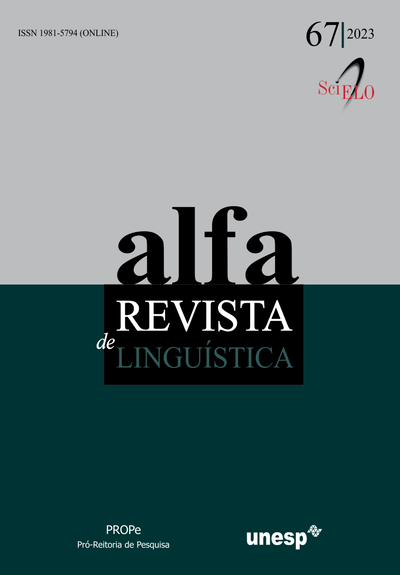Framed statements of “vagrant” bodies
reading of an archive of police repression on travesti prostitution
DOI:
https://doi.org/10.1590/1981-5794-e16714Keywords:
police archives, travesti prostitution, vagrancy/loitering, discursive framesAbstract
This article examines a police file on repression of travesti prostitution in the 1970s in the city of São Paulo. The aim is to use police documents to analyze the strategy of having framing bodies to manufacture criminals, in the frame of the penal discourse on the vagrancy misdemeanor. The research corpus is 316 affidavits issued by the Civil Police of São Paulo, criminological texts, laws, and a police manual, gathered through documentary research. A multidisciplinary reference base (linguistic, historical, legal, and philosophical) is the basis for the integrated reading of the corpus materials. The analyses focus on the construction of the penal argument, the instances of enunciation, and the observation of formal elements that point to the criminalization of cross-dressing prostitutes by mobilizing a language apparatus to physically and morally describe their bodies. The discursive strategies are interpreted in this study as technologies of a pastoral power that acts on the circulation of bodies in urban spaces in the context in question, following Michel Foucault’s understanding.
Downloads
Downloads
Published
How to Cite
Issue
Section
License
Copyright (c) 2023 ALFA: Revista de Linguística

This work is licensed under a Creative Commons Attribution 4.0 International License.
Manuscripts accepted for publication and published are property of Alfa: Revista de Linguística. It is forbidden the full or partial submission of the manuscript to any other journal. Authors are solely responsible for the article's content. Translation into another language without written permission from the Editor advised by the Editorial Board is prohibited.

